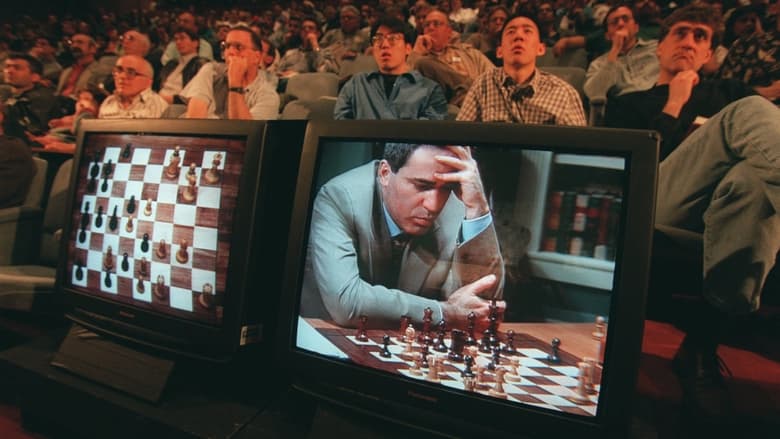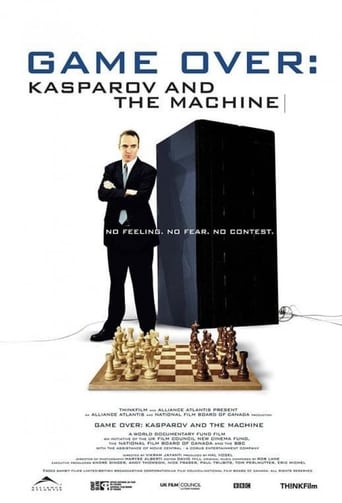
Game Over: Kasparov and the Machine
September. 05,2003Garry Kasparov is possibly the greatest chess player who has ever lived. In 1997, he played a match against the greatest chess computer: IBM's Deep Blue. He lost. This film depicts the drama that happened away from the chess board from Kasparov's perspective. It explores the psychological aspects of the game and the paranoia surrounding IBM's ultimate chess machine.
Similar titles
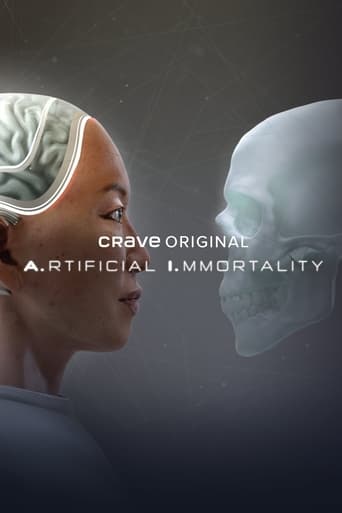
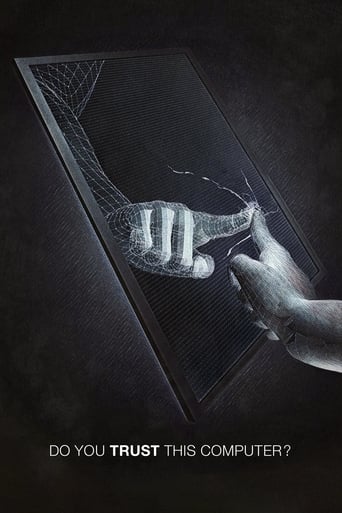
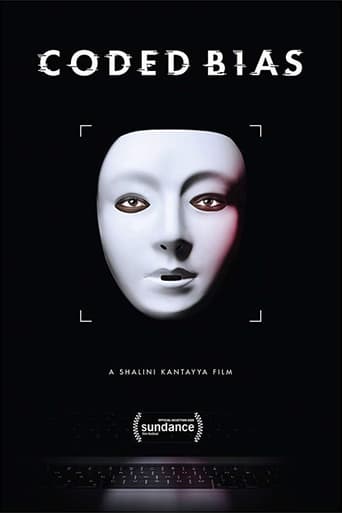
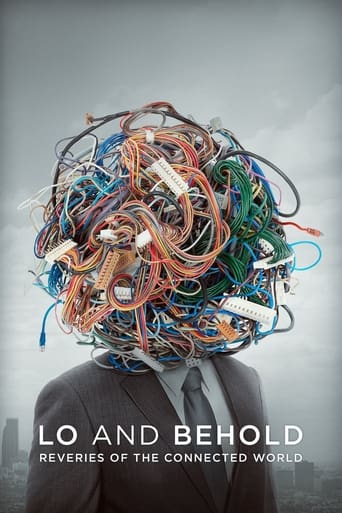

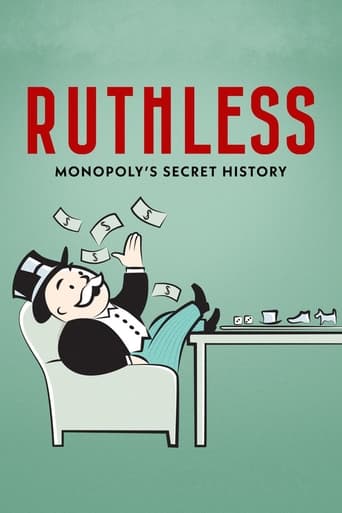
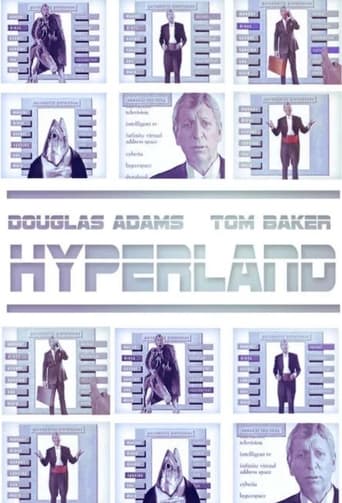
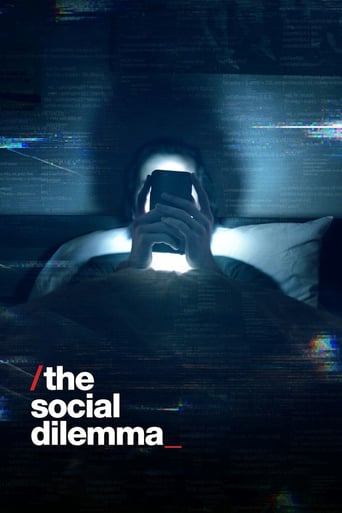
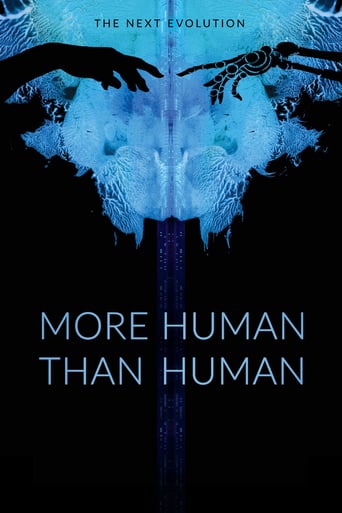
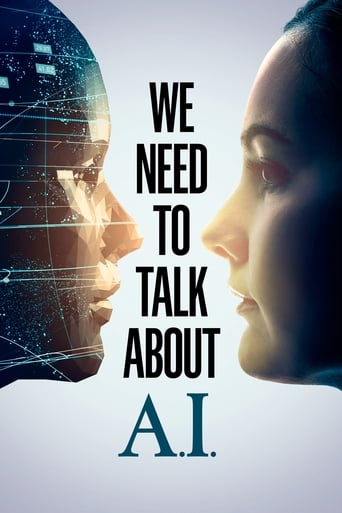
Reviews
That was an excellent one.
Surprisingly incoherent and boring
I don't have all the words right now but this film is a work of art.
All of these films share one commonality, that being a kind of emotional center that humanizes a cast of monsters.
I used to play competitive chess in the early nineties (achieved Candidate Master rating of 2012 CFC) To non "chess" people this means I was a pretty strong player... to "chess" people this is not very impressive. Just to add perspective. There is/was/used to be? a collective illusion among the competitive chess community. 1) The MYTH that chess equates to human intellect. The Soviets exploited this for years in order to demonstrate their superior "State". 2)Chess is LARGELY about beating the "person" you are playing. NOT about finding the best moves to play (Preparing for a specific opponent, anti-computer strategy, and of course the ultra-important "psychological" aspect. Here's what I think happened... IBM was playing to WIN. This seemed to come as a surprise? to Kasparov. IBM probably hired a team of psychologists to plan most of the event and psyche out Kasparov (worked). I think IBM dumped the first game then played for real in the rest. Fischer did this to Spassky. Cheating? Doubtful. Good sportsmanship Kasparov! To publicly accuse your opponent of cheating!
A retrospective on the series of matches played between world chess grandmaster Garry Kasparov and Deep Blue, IBM's specially-developed thinking machine, in which both sides come off as snide, arrogant and obsessively self-absorbed. IBM, it would seem, used the encounter as a highly successful publicity stunt and, having achieved their ultimate goal of a victory against the best in the world, promptly closed up shop without ever offering a rubber match. But Kasparov, whose perspective plays driver for most of the documentary, doesn't slip so easily into the role of the rallying hero. The old master makes a few sound observations about the shroud of secrecy that surrounded his digital opponent during their fateful second meeting, but ultimately seems most interested in making excuses for his loss than sharing any new insight. Even the filmmakers do a questionable job of remaining unbiased, allowing each party to share their opinions without obstruction, but ultimately spending most of their effort focused on Kasparov's wild conspiracy theories. They also, puzzlingly, give away the ending no less than three times over the course of the picture, effectively killing the drama of the situation. As a result, this documentary never builds up a head of steam and winds up as little more than a straight, bland, historical record that lacks both a resolution and a truly appealing central figure.
In 1997 Kasparov, considered (according, that is, to this biased documentary), the greatest chess player in history, played a high profile match against an IMB supercomputer called Deep Blue devised for the sole purpose of not only playing world class chess but beating the greatest of grand masters -- in fact created specifically to beat Kasparov. The stakes were $700,000-$400,000, winner/loser. It can't be said that Deep Blue really beat Kasparov, who had beaten a simpler form of the computer several years earlier. What happened is that the second of the six games spooked Kasparov so much -- and he resigned, when later it was pointed out he might have achieved a draw -- that he never recovered psychologically, and by game six he was a psychological wreck, couldn't focus, and resigned, thereby losing the match.Surely Jayanti has a good subject: the human brain against artificial intelligence, the triumph of steely mindless machinery over brilliant, volatile intellectual genius. The filmmaker spoils his documentary by intruding too much with portentous music, gimmicky images of antique dolls, and by providing too little perspective outside the viewpoint of Kasparov himself, not even questioning the wild and unsubstantiated accusations that Kasparov throws out against IBM. There's still interest here, and so much at stake that it may be understandable that some (again wildly) have called this the best film about chess ever. Nonetheless that seems a bit of a misnomer given that there is so little specifically about chess and its moves -- though there is valuable and relevant information about the psychological pressures of great matches and the statistical complexity of the game itself.Kasparov's personality is lively and his English is good, but that is not enough in itself to counteract the gimmicky use of antique mechanical chess-playing dummies as a suggestive "echo" of the IMB mega-computer Deep Blue, the portentous music, the pseudo-spooky whispering voice-overs, and Jayanti's aforementioned refusal to challenge any claims Kasparov makes about the way things went or about his place in the history of world chess.Kasparov challenged Karpov in 1984-85 in a huge series of games, Armenian Jew against, as he saw it, the Soviet block -- a styling much favored (though the film does not note this obvious aspect) by Cold War attitudes in the United States -- and for his overall performance he had established himself as "the greatest chess player in history." (The many possible challenges to that claim are something the film doesn't go into for a moment.) In 1997 IBM, seeking to improve its stolid image against the livelier profiles of Microsoft and Apple, staged a hugely promoted New York six-game match between Kasparov and a newly improved and enlarged Deep Blue. They had six boffins lined up before and after each game, the chess and programming experts who were Deep Blue's handlers. Was that good strategy, lining up six grinning Asian and Caucasian nerds against one challenged Armenian Jew? Doubtful; and though at the end, IBM sternly directed its crew not to smile, that did little to offset its earlier displays of conspicuous nerdly smugness. IBM also maintained tight security around the emplacement of the large computer, and refused ever to release printouts of its operations to Kasparov. According to him, they promised to at the end, but never did.What happened is this: in game one, Deep Blue played like a machine, and Kasparov won easily. He thought that would continue. But in game two, he attempted a trick with pawns -- the film never goes into any detail about the actual chess moves and offers little of concrete interest to chess enthusiasts, but something that would normally lead a computer astray, into immediate profiting. But the machine didn't fall for it, and instead embarked on a mysterious and very humanoid-seeming grand strategy that put Kasparov in a very bad position. He was stunned. He overreacted, resigning as mentioned though later he realized he could have extracted a draw from the situation. From game two on, the champion became lastingly paranoid. And throughout the rest of the match, he never got over it. He suspected that some grand masters were assisting in deciding the moves of Deep Blue against him; and there were plenty of grand masters around, presumably in the employ of IBM. It's generally agreed, according to the film, that even a merely fine chess player, not necessarily world class, working together with a computer, could beat anybody. And that would not have been fair, and wasn't what was agreed upon. However, the film never provides a shred of evidence that IBM cheated in this way. All that's clear is that a machine doesn't lose its cool, and a human chess player very often does. Great a player as he is, Kasparov isn't cool. Someone remarks that he would make a terrible poker player, and in fact when things (in his view) are not going well, it is written all over his face and conspicuous in his body language. Kasparov, and Jayanti with his style, suggest that IBM's manipulations connect with Eighties YUPPIE thinking and corporate, Enron-style greed. But there is no proof of this. All that is clear is that IBM lacked finesse in its handling of the match, but profited much by it: stock went up in value 15% after this event. Where Kasparov is now isn't made very clear, but the film states that he is still playing and winning, against humans, and in 2003 tied in a match against the latest computer chess master, Deep Blue Junior, in Israel, and has met various challenges in recent years, been beaten, but still remains "the greatest." You can review Kasparov's chess history online at various sites. Kasparov is a great player. His role in world chess has been far more dubious than this documentary would have us believe. His full story, with all its pros and cons, has yet to be etched in celluloid.
I am a chess player and I wanted to like this film. Trouble is, the content could have been fitted in a 30-minute documentary.There were lots of shots of corridors being walked down and Kasparov gazing out in the hall where he won the World Championship. There were other shots of Kasparov being walked round the site of the 1997 match and being told where he sat and where Deep Blue was located. This just looked like filler.Also, I didn't find it interesting to see in detail where Deep Blue was now and seeing an IBM techie trying, unsuccessfully to 'open' it. What would we have seen of interest inside anyway - a little grandmaster?Also, the recent match against Karpov. I no longer follow professional chess enough to know when and where this was. It would have been nice to have been told: was this a one-off 'just for the money'? Was it part of the world championship cycle? What was the final score? The nub of the film was the play in game two. Could/would IBM let Kasparov see 'inside' the machine? That's where the focus should have been.
Top Streaming Movies











